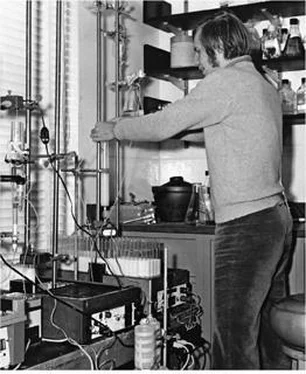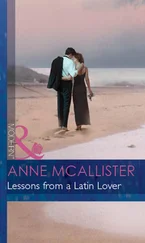James Watson - AVOID BORING PEOPLE - Lessons from a Life in Science
Здесь есть возможность читать онлайн «James Watson - AVOID BORING PEOPLE - Lessons from a Life in Science» весь текст электронной книги совершенно бесплатно (целиком полную версию без сокращений). В некоторых случаях можно слушать аудио, скачать через торрент в формате fb2 и присутствует краткое содержание. Жанр: Биографии и Мемуары. Описание произведения, (предисловие) а так же отзывы посетителей доступны на портале библиотеки ЛибКат.
- Название:AVOID BORING PEOPLE: Lessons from a Life in Science
- Автор:
- Жанр:
- Год:неизвестен
- ISBN:нет данных
- Рейтинг книги:5 / 5. Голосов: 1
-
Избранное:Добавить в избранное
- Отзывы:
-
Ваша оценка:
- 100
- 1
- 2
- 3
- 4
- 5
AVOID BORING PEOPLE: Lessons from a Life in Science: краткое содержание, описание и аннотация
Предлагаем к чтению аннотацию, описание, краткое содержание или предисловие (зависит от того, что написал сам автор книги «AVOID BORING PEOPLE: Lessons from a Life in Science»). Если вы не нашли необходимую информацию о книге — напишите в комментариях, мы постараемся отыскать её.
AVOID BORING PEOPLE: Lessons from a Life in Science — читать онлайн бесплатно полную книгу (весь текст) целиком
Ниже представлен текст книги, разбитый по страницам. Система сохранения места последней прочитанной страницы, позволяет с удобством читать онлайн бесплатно книгу «AVOID BORING PEOPLE: Lessons from a Life in Science», без необходимости каждый раз заново искать на чём Вы остановились. Поставьте закладку, и сможете в любой момент перейти на страницу, на которой закончили чтение.
Интервал:
Закладка:
At the time I had hopes that Houghton Mifflin would publish Honest Jim. The year before on a May evening I'd driven out to Beverly, to the elegant large square wooden house of Dorothy de Santillana, a senior editor at Houghton Mifflin, whose husband Giorgio's expertise was the history of science. We had met earlier through Dorothy's younger relative the Radcliffe graduate Ella Clark. Over dinner I enjoyed talking to the novelist Alberto Moravia's much younger wife, Dacia Maraini, who had just published a sexually charged novel of her own. In leaving, I gave several early chapters of Honest Jim to Dorothy. Soon she wrote me a flattering note saying that when my manuscript was more complete, I should show it to Houghton Mifflin.
As the spring 1965 term ended, I flew off to Germany to deliver three lectures. The first was in Munich, where I shared my first suckling pig in a large beer hall with the biochemist Feodor Lynen. Then his country's
most accomplished biochemist, he went to the States at least twice a year to keep up as an enzymologist. Later that year, he would be receiving the Nobel Prize in Physiology or Medicine jointly with my Harvard colleague Konrad Bloch, for discovering how cholesterol is made in cells. I next traveled north, first to Würzburg and then to Göttingen, where the chemist Manfred Eigen's fast-reaction chemistry would, in three years, also earn a Nobel. Just a year older than I, Manfred was boyishly enthusiastic about an amazing range of nonchemi-cal activities, especially the piano. At his home he assembled a small chamber orchestra to accompany him as he raced through a Mozart concerto with only occasional mistakes.My main purpose in going to Europe was a June conference, “The Principles of Biomolecular Organization,” at the CIBA House in London. It was effectively a follow-up to the “Nature of Viruses” meeting there nine years before. Just before the meeting, J. D. Bernal, the head of the Birkbeck College lab where Rosalind Franklin had moved after leaving King's, suffered a mild stroke that made his delivery of the opening remarks painful for those who had long known him as “Sage.” No trace of a halting brain appeared in his later published piece stating that life is in no sense a metaphysical entity but a precisely patterned structure right down to the atomic level. Feodor Lynen was also in the audience and both of us were intrigued by the last talk, “The Minimum Size of Cells,” by Yale's Harold Morowitz. Here he focused on the smallest free-living cells, organisms such as PPLO and mycoplasma, whose genomes likely contained fewer than a million base pairs.
I left central London after the meeting to visit Av and Lorna Mitchi-son on the Ridgeway, near the grounds of the Mill Hill Laboratory of the Medical Research Council. A number of family friends were there, the youngest being the intelligent and statuesque Susie Reeder, about to receive her university degree at Sussex and soon to commence a postgraduate degree program in criminology at Cambridge. The next evening we had dinner at Rule's Restaurant, just below Covent Garden. It was just a few minutes’ walk away from the Aldwych Theatre, where we saw Harold Pinter's The Homecoming, with Ian Holm and Vivian Merchant, then Pinter's wife. Afterward, I walked Susie across
Waterloo Bridge, where she caught a train to her mother's home in Putney.A month later Susie was to be in the States on her way to a month-long holiday near Denver, where she planned to visit her British boyfriend. She seemed eager to stop off in Cold Spring Harbor, where in mid-July I would be staying at the home of the lab's director, John Cairns. In the end she came only for a day, letting me admire her swimsuited form on the raft off the lab's beach. Ensuring that the occasion's memory would not be one to cherish was the continuous presence of the Cairnses’ German police dog, who nearly bit me on the leg before being dispatched. Early in September, on her way back to England, Susie stopped off in Boston long enough to let me take her to supper at the Union Oyster House after I'd ruefully observed her lack of attention to the art on the walls of my Appian Way flat.
Two weeks before, W A. Benjamin had held a party at Woods Hole to mark the appearance of the first copies of The Molecular Biology of the Gene. Many from my Harvard lab came down for the event, as did my dad, whom Neil Patterson kindly spent much time talking to. Earlier in the day, I had driven down with a pretty Radcliffe senior with short blond hair called Joshie Pashler, who also had something to celebrate in the recent discovery of her first RNA phage R17 mutant. Over the summer, I let Joshie read newly completed Honest Jim chapters, hoping each would make her want to read the next one. Like my previous intelligent and pretty assistants, Joshie had a steady Harvard boyfriend, though I noted by way of small comfort that she was a good deal sharper than he was.
Also at the W A. Benjamin party was Keith Roberts, back for much of the summer. His first months up at Cambridge had not been what he anticipated. To start with, his longtime girlfriend from Norwich, Jenny, had taken up with “a more mature, better-looking man.” And his Cambridge digs, while cheap, were grim—one small room without the typical fireplace. Moreover, he found life at his college dull, with everything closing down at 11:30 P.M. and a gown required while dining in St. John's five nights a week. As modest distractions, he took out subscriptions to the Arts Society, the Humanists, and the Marxist Society. He also had the pleasure of hearing Francis lecture to the
Humanists on the topic “Is Vitalism Dead?” with a fiery delivery that put off those not sharing the view that religion is a mistake. Lately things were looking up, however, as Jenny had come back to Keith before the academic year ended and was with him at the Woods Hole party. Without Keith's artwork, my text would not have sold almost twenty thousand copies the first year and even more the second, generating yearly royalty income soon equal to my Harvard salary.During the coming academic year, I planned to be on sabbatical in Alfred Tissières's lab in Geneva, with half of my Harvard salary supplemented by a Guggenheim Fellowship. As the time to leave approached, though, I realized the first half of sabbatical time would be better spent finishing Honest Jim in Cambridge. There I could probe Francis's memory of key moments in our adventure. Before flying across the Atlantic, I sent my half-complete manuscript to Dorothy de Santillana to share with her Houghton Mifflin colleagues. Several weeks passed before I got a response from their chief editor, Paul Brooks, over a Friday lunch at his Boston club. In his opinion, the language was too strong and likely to lead to libel suits. But since he was not expert on such matters, he had arranged for me to visit Hale and Doer, the prestigious downtown Boston firm to which they had sent my chapters. Several days later, I again crossed the Charles River to go over several pages of comments by a Boston blueblood, improbably named Conrad Diesenhofer, on how my use of certain words would create trouble. I went back to Harvard suspecting that Houghton Mifflin's risk aversion could not allow them beyond the jeopardy that might attend issuing further editions of Roger Tory Peterson's bird guides.
In Cambridge, Sydney Brenner had arranged for me to have an absent fellow's digs at King's, overlooking the big green lawn that fronted Clare College. Once a chapter was finished, I took it to the Laboratory of Molecular Biology (LMB) for typing by Francis's young secretary. That I was writing up the story as a solo effort, not a joint project, at times seemed to annoy Francis. But on other occasions, he easily recalled key events that had already vanished from my memory. Later I showed my resulting efforts to Susie Reeder, whose postgraduate criminology studies were centered in a nineteenth-century house
Читать дальшеИнтервал:
Закладка:
Похожие книги на «AVOID BORING PEOPLE: Lessons from a Life in Science»
Представляем Вашему вниманию похожие книги на «AVOID BORING PEOPLE: Lessons from a Life in Science» списком для выбора. Мы отобрали схожую по названию и смыслу литературу в надежде предоставить читателям больше вариантов отыскать новые, интересные, ещё непрочитанные произведения.
Обсуждение, отзывы о книге «AVOID BORING PEOPLE: Lessons from a Life in Science» и просто собственные мнения читателей. Оставьте ваши комментарии, напишите, что Вы думаете о произведении, его смысле или главных героях. Укажите что конкретно понравилось, а что нет, и почему Вы так считаете.












